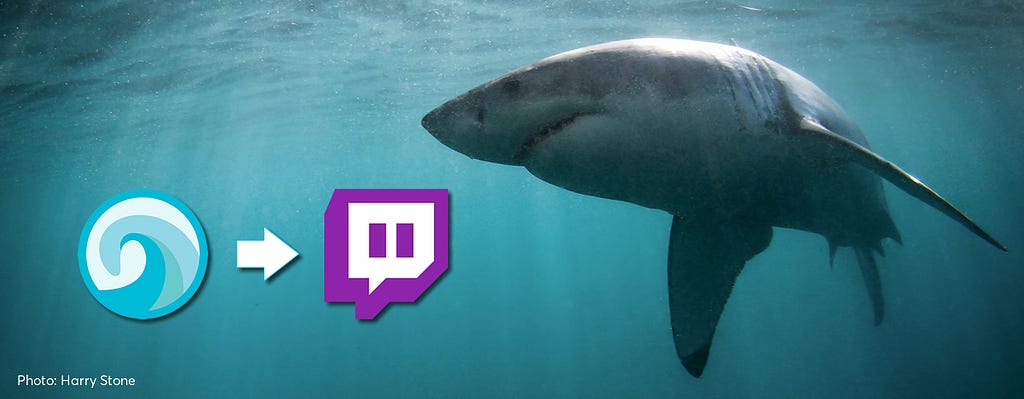AMA #2 — Kristina Loosen
AMA #2 — Kristina Loosen

On the 11th of August, the second edition of our weekly livestream goes out live on Twitch! Alongside the usual contests, prizes and opportunities to get involved with SEA projects, it will feature marine biologist Kristina Loosen, the mind behind our first supported SEAstarter project.
In case you haven’t come across SEAstarter, it’s our launchpad for new environmental projects. We seek out, fund and develop projects with the potential to make high-impact change in the fight against ocean degradation, climate change and other environmental threats. SEAstarter puts the resources in place to turn brilliant ideas into reality.
Kristina’s project aims to use environmental DNA, a revolutionary new method of gathering information from a habitat, to assess shark populations off the South African coast. The region is among the top five global hot spots for elasmobranch biodiversity, and considered a living laboratory for assessing the effect and impact of rapidly occurring climate changes. Her study specifically targets the subclass of elasmobranches — a group incorporating all species of cartilaginous fish, such as sharks, rays, skates and sawfish. Assessments of biodiversity of elusive species, such as elasmobranchs and especially sharks, are notoriously challenging — this limits data availability and hampers conservation efforts. Traditional ways to monitor elasmobranchs biodiversity rely on reports from the fishing industry or ad-hoc research expeditions — these are time consuming and often expensive. In contrast, the use of environmental DNA (eDNA), is rapidly becoming a non-lethal, relatively cheap and efficient alternative to traditional methods for assessing local marine biodiversity.
Environmental DNA or eDNA is defined as DNA material shed by an animal to its environment. By taking samples of the environment, in this case water samples, we are able to identify the species present in the area by amplifying DNA fragments dissolved in the water. A bucket of water taken from a specific habitat can tell us which species have passed through there — this is a huge breakthrough for shark population monitoring. To date eDNA hasn’t been used in South Africa to assess shark biodiversity, so this study aims to provide the baseline for the application of this cutting-edge technique for efficient shark monitoring.
South Africa, positioned between the Atlantic and the Indian Ocean, is considered a climate change hotspot, with rapid modifications in environmental and oceanographic conditions, suspected to be impacting the distribution of marine species. The presence of approximately 200 shark species distributed around the South African coastline, with different evolutionary history, biology and adaptation potential, makes this group the ideal study subject.
So, get your questions ready! Kristina will be live on our Twitch channel from 17:00 UTC on Wednesday (August 11th), and ready to answer questions about the project, about sharks, about eDNA, and marine biology in general! As always, there are prizes for the best questions submitted on Twitter in advance, prizes for the quiz at the end of the livestream, and the usual referral rewards.
For full info on the AMA’s, the contests, referral rewards and everything else, go to seatoken.org/ama
See you there!

Leave a Reply